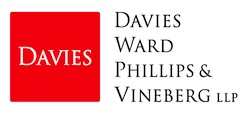CABA Files Submissions with the Supreme Court of Canada in Expat Voting Rights Appeal
On December 9, 2016, CABA filed its intervener submissions with the Supreme Court of Canada in Gillian Frank et al. v. Attorney General of Canada, a constitutional challenge of provisions in the Canada Elections Act that prevent Canadian citizens who have resided outside of Canada for more than five years from voting in Canadian elections. CABA’s position in the appeal is that the challenged restriction violates the Canadian Charter of Rights and Freedoms by depriving nonresidents of a core democratic right guaranteed to “every citizen of Canada.” In its intervener submissions, CABA emphasizes that the voting rights of citizens are not optional, and do not expire or wither away with time. The government’s creation of a hierarchy of rights-holders based on alleged differences in the legal burdens they face as Canadians undermines Canadian citizenship and ignores the globalized world in which Canadians live.
The Supreme Court has scheduled oral argument in the case for February 16, 2017. On December 5, 2016, the Attorney General of Canada filed a motion for adjournment on the grounds that a bill aimed at removing the challenged restriction is currently before Parliament and will render the appeal moot. If the Supreme Court agrees, it will leave intact a decision of the Ontario Court of Appeal that upheld the restriction as a matter of legislative policy falling within the discretion of Parliament.
Read CABA’s full submissions here.
Additional case information can be accessed on the Supreme Court of Canada docket: http://www.scc-csc.ca/case-dossier/info/dock-regi-eng.aspx?cas=36645




















